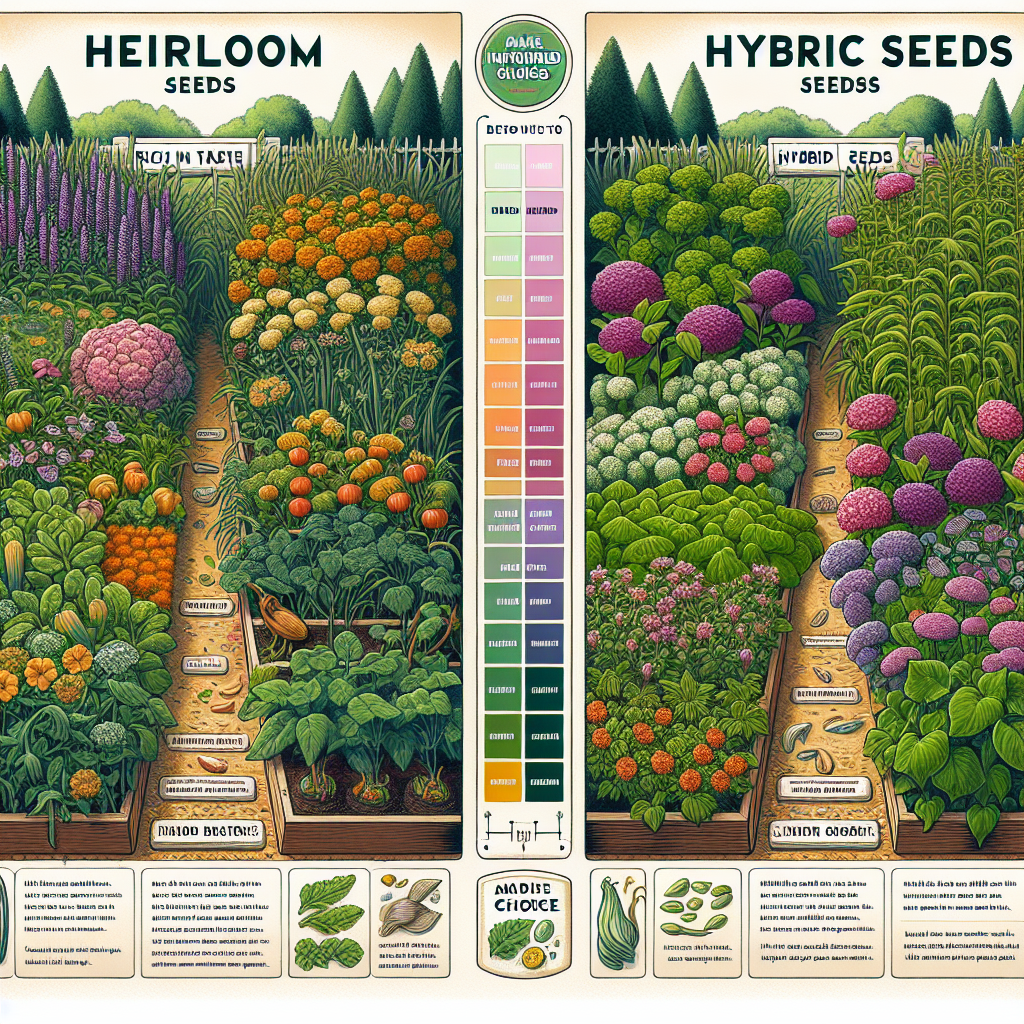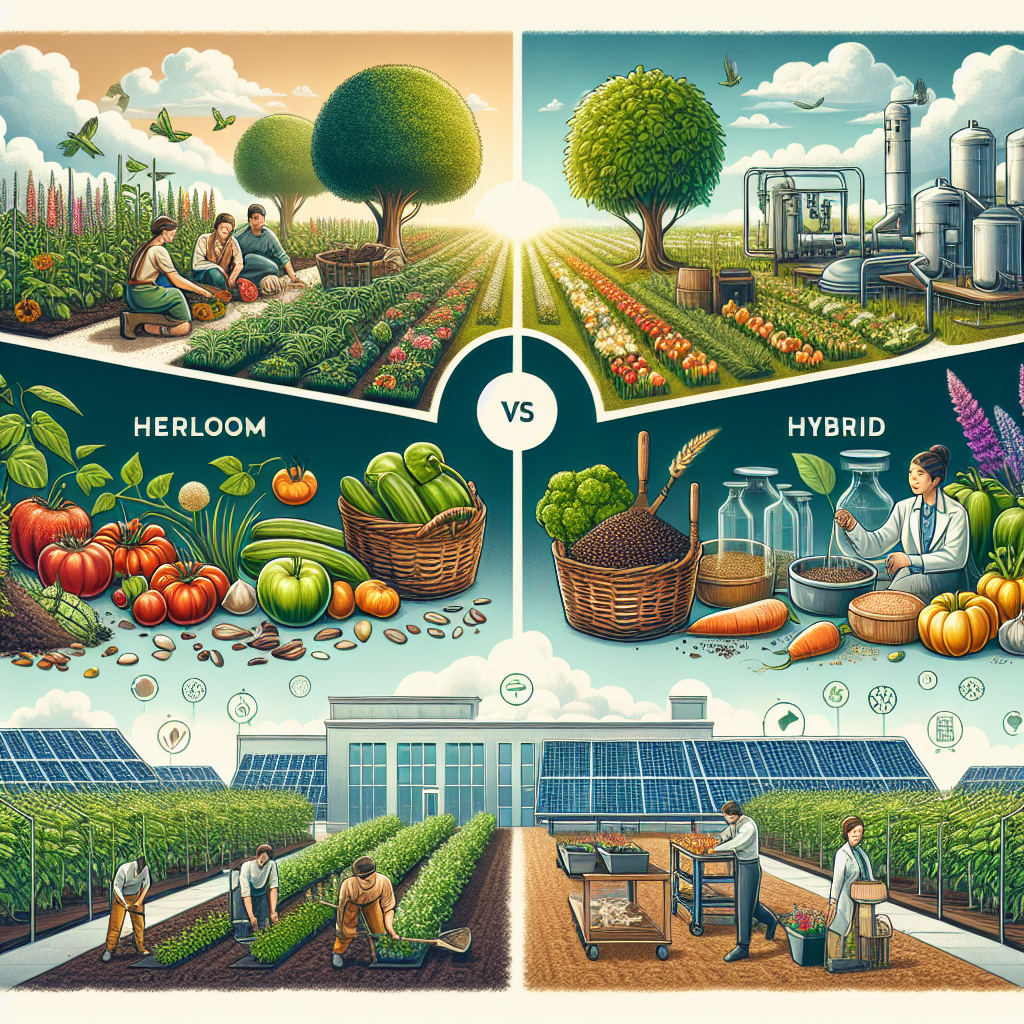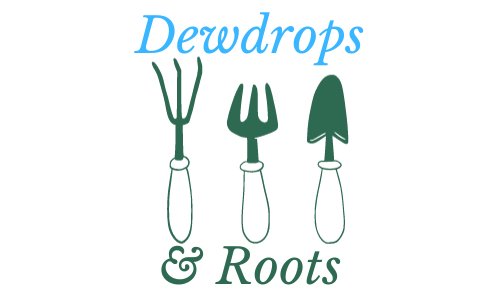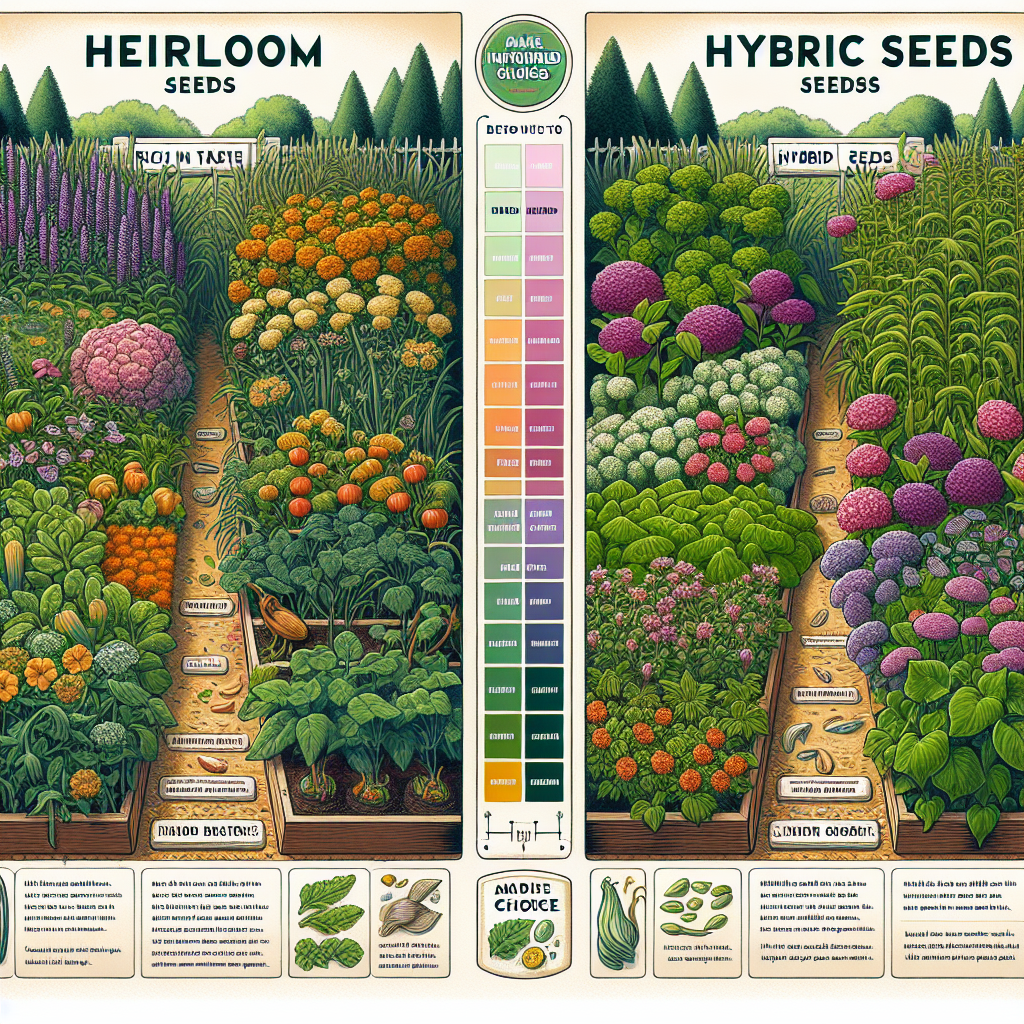In this article, you will explore the intriguing world of heirloom and hybrid seeds and discover the significant differences between the two. Whether you’re a seasoned gardener or just starting out, understanding these distinctions can greatly impact the success and satisfaction of your gardening endeavors. Join us on this horticultural journey as we shed light on the fascinating characteristics and advantages of both heirloom and hybrid seeds. Get ready to delve into the wonders of these seeds and unlock the possibilities for your own stunning garden!
Definition of Heirloom Seeds
Heirloom seeds are seeds that have been passed down from generation to generation, often within a family or community. These seeds are open-pollinated, meaning they are pollinated by natural means such as wind, insects, or birds. Heirloom seeds have a long history and are typically associated with specific cultural or historical backgrounds. They are valued for their genetic purity and preserving the traits of older plant varieties.
Characteristics of Heirloom Seeds
Heirloom seeds have distinct characteristics that set them apart from other types of seeds. Firstly, they are known for their genetic diversity, as they have not undergone extensive breeding or modification. This diversity allows for a wide range of plant adaptations, making them well-suited to various environmental conditions. Heirloom seeds also contribute to the preservation of traditional plant varieties and their unique flavors, textures, and colors.
History of Heirloom Seeds
The history of heirloom seeds dates back thousands of years. These seeds have been cultivated and saved by farmers, gardeners, and Indigenous communities, ensuring the survival and propagation of specific plant varieties. Heirloom seeds played a crucial role in sustaining communities and providing a diverse range of food options. With the advent of commercial agriculture and hybridization, the popularity of heirloom seeds faded. However, in recent years, there has been a renewed interest in heirloom seeds due to their cultural significance and their role in preserving biodiversity.

Definition of Hybrid Seeds
Hybrid seeds, on the other hand, are the result of intentional cross-pollination between two different plant varieties. This controlled breeding process combines the desired traits of each parent plant to create offspring with specific characteristics. Hybrid seeds are typically created by professional seed breeders and are labeled as F1 hybrids. These seeds are known for their uniformity and consistent performance.
Characteristics of Hybrid Seeds
Hybrid seeds possess distinct characteristics that make them appealing to growers. Firstly, they exhibit a high degree of uniformity in terms of plant size, maturity time, and yield. This predictability allows farmers to plan and manage their crops more efficiently. Hybrid seeds are also bred for disease and pest resistance, making them less susceptible to environmental and biological challenges. Furthermore, hybrids often demonstrate improved shelf life, transportation durability, and overall market appeal.
History of Hybrid Seeds
The development of hybrid seeds began in the early 20th century with the work of scientists and plant breeders. The goal was to create crops with higher yields, increased disease resistance, and improved marketability. By combining the desirable traits of different parent plants, hybrid seeds offered significant advancements in agricultural productivity. Over time, hybridization became widespread, especially in commercial farming, leading to the popularity and dominance of hybrid seeds in the market.

Genetic Diversity
Genetic diversity is a key factor to consider when comparing heirloom and hybrid seeds. It refers to the variety of genetic characteristics present within a population of plants. Genetic diversity is essential for the long-term survival and adaptability of plant species, as it allows them to withstand environmental changes, pests, and diseases.
Importance of Genetic Diversity
Genetic diversity plays a crucial role in maintaining healthy and resilient ecosystems. It allows plants to adapt and evolve, ensuring their survival in changing conditions. In agriculture, genetic diversity is essential for crop resilience, as different varieties may possess unique traits that make them better suited to specific environments or resistant to particular pests and diseases. By maintaining genetic diversity in our seed banks and conserving heirloom seeds, we ensure the availability of a wide range of plant traits for future generations.
Impact of Genetic Diversity on Heirloom and Hybrid Seeds
Heirloom seeds are known for their genetic diversity, as they have not undergone extensive breeding or genetic manipulation. This diversity allows for a broader range of traits and adaptations, making heirloom plants more flexible in different growing conditions. On the other hand, hybrid seeds, while possessing desirable traits, may have limited genetic diversity due to the controlled cross-pollination process. This can make hybrid plants more susceptible to specific diseases or pests if they lack the necessary genetic traits to combat them.
Availability
The availability of seeds is an important consideration for growers. While both heirloom and hybrid seeds can be found in the market, their availability may vary.
Availability of Heirloom Seeds
Heirloom seeds are readily available through various channels, including specialized seed banks, local farmers’ markets, and online platforms. These seeds are often saved and shared within communities and have a strong connection to cultural heritage and traditional farming practices. Many small-scale farmers and gardeners also save and exchange heirloom seeds, contributing to their wider availability and accessibility.
Availability of Hybrid Seeds
Hybrid seeds are widely available in the market, particularly through commercial seed companies and agricultural supply stores. Due to their uniformity and predictable performance, hybrid seeds have been favored by large-scale industrial agricultural operations. As a result, they are often more readily available for commercial growers. However, it is important to note that hybrid seeds generally need to be purchased every season, as saved hybrid seeds do not reliably produce offspring with the same desired traits as the parent plant.
Plant Adaptability
Plant adaptability refers to a plant’s ability to thrive and produce successful crops in specific environmental conditions. It is a critical factor for growers to consider when selecting seeds for their farms or gardens.
Heirloom Seeds and Plant Adaptability
Heirloom seeds are known for their adaptability to different climates, soil types, and growing conditions. Over generations, heirloom plants have evolved and adapted to local environments, allowing them to thrive in specific regions or microclimates. This adaptability makes heirlooms a good choice for small-scale farmers and gardeners who value diversity and want plants that can withstand a range of environmental challenges.
Hybrid Seeds and Plant Adaptability
Hybrid seeds, while bred for specific traits, may not possess the same level of adaptability as heirlooms. Since hybrids are often developed and selected for high productivity or uniformity, they may be less equipped to handle extreme or diverse growing conditions. However, it is worth noting that some hybrid varieties have been specifically bred for adaptability and may offer traits such as heat or drought tolerance.
Taste and Flavor
The taste and flavor of fruits and vegetables play a significant role in our overall culinary experience. Heirloom and hybrid seeds can have distinct impacts on the taste and flavor of crops.
Heirloom Seeds and Taste
Heirloom seeds are cherished for the unique and often superior taste they produce. Due to their genetic diversity and preservation of older plant varieties, heirloom crops can offer exceptional flavor profiles and a wide range of culinary experiences. For those who value the taste and diversity of fruits and vegetables, heirloom seeds are often the preferred choice.
Hybrid Seeds and Taste
Hybrid seeds, while bred for traits such as uniformity or disease resistance, may not always prioritize taste in the same way heirlooms do. As hybridization focuses on specific traits, the flavor of some hybrid crops may be less pronounced or uniform compared to heirlooms. However, hybrid varieties are continuously improving, and there are now hybrid fruits and vegetables available that offer excellent taste and flavor.
Plant Performance
Plant performance refers to the overall growth, yield, and resilience of plants in different conditions. It is an important consideration for farmers and gardeners seeking high-quality crops.
Heirloom Seeds Performance
Heirloom seeds can display variable performance depending on the specific variety and growing conditions. While some heirlooms may have lower yields or be more susceptible to pests or diseases, others can excel in certain environments. Additionally, because heirlooms have not been extensively bred for specific traits, they may demonstrate greater resilience and adaptability to changing conditions.
Hybrid Seeds Performance
Hybrid seeds are bred for consistent and reliable performance. They often exhibit higher yields, uniformity, and resistance to pests and diseases. Hybrid plants are designed to optimize productivity, making them attractive to commercial farmers who rely on consistent crop output for economic viability. However, it should be noted that the performance of hybrid seeds may vary depending on the specific variety and environmental factors.
Seed Saving and Storage
Saving and storing seeds allows growers to maintain seed diversity and reduce reliance on commercial seed sources. However, the saving and storage processes can differ for heirloom and hybrid seeds.
Heirloom Seeds and Seed Saving
Heirloom seeds are excellent candidates for seed saving as they typically produce offspring true-to-type, meaning the saved seeds will grow plants with similar traits to the parent plant. Many heirloom varieties have been saved and handed down for generations, making them an integral part of seed-saving traditions. To save heirloom seeds successfully, it is important to follow proper seed-saving techniques and ensure cross-pollination does not occur between different varieties.
Hybrid Seeds and Seed Saving
Saving hybrid seeds is generally not recommended, as the saved seeds will not necessarily produce offspring with the same desirable traits as the parent plant. Hybrid seeds are the result of specific cross-breeding, and the subsequent generations may not exhibit the same uniformity or desired characteristics. To maintain the desired traits of hybrid plants, growers typically need to purchase new hybrid seeds each season.
Cost
The cost of seeds can impact growers’ choices, especially for those on a limited budget. Heirloom and hybrid seeds can vary in terms of their cost.
Cost of Heirloom Seeds
Heirloom seeds are often more affordable compared to hybrid seeds. This is because heirloom seeds can be saved and shared among growers, reducing the reliance on purchasing new seeds each season. Additionally, many heirloom seeds are available through small-scale local suppliers or community seed banks, which often provide seeds at lower prices.
Cost of Hybrid Seeds
Hybrid seeds tend to be more costly compared to heirloom seeds. This is because hybrid seeds typically involve complex breeding processes and require specialized expertise from seed breeders. The cost of hybrid seeds reflects the investment required to develop and maintain the desired traits, as well as the demand and market value associated with hybrid varieties.
Environmental Impact
Considering the environmental impact of different seeds is essential for sustainable farming and gardening practices. Both heirloom and hybrid seeds can have distinct environmental implications.
Environmental Impact of Heirloom Seeds
Heirloom seeds can contribute positively to the environment in several ways. By preserving and cultivating heirloom plants, growers help maintain biodiversity and protect older plant varieties from extinction. Heirlooms often require less intensive inputs, such as synthetic fertilizers or pesticides, due to their adaptability and innate resistance to pests and diseases. Additionally, heirloom seeds can enhance soil health and microbial diversity through their natural genetic diversity.
Environmental Impact of Hybrid Seeds
The environmental impact of hybrid seeds can be more complex. While the improved productivity and disease resistance of hybrid crops can reduce the need for chemical inputs, the breeding and production of hybrid seeds may require more extensive resources and energy. Furthermore, the reliance on purchasing new hybrid seeds each season can lead to increased waste and reliance on commercial seed sources. It is worth noting that advancements in sustainable hybrid seed production practices are being made to mitigate these environmental concerns.
In conclusion, understanding the difference between heirloom and hybrid seeds is key to making informed choices as a grower. Heirloom seeds offer genetic diversity, cultural significance, and unique flavors, while hybrid seeds provide predictability, disease resistance, and high productivity. The availability, adaptability, taste, performance, seed-saving potential, and cost of seeds are all factors to consider when selecting the seeds that best align with your goals and values as a grower. Regardless of the choice, valuing genetic diversity and sustainable farming practices is essential for the long-term health and resilience of our agricultural systems.

